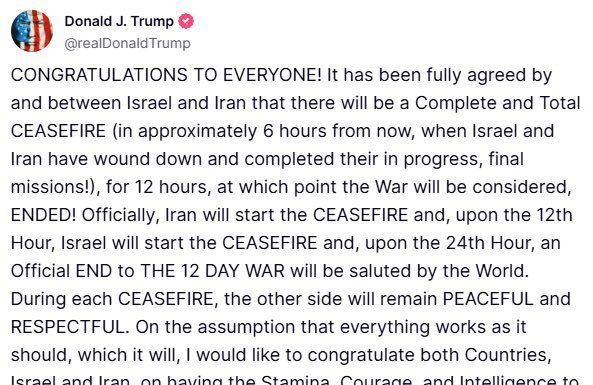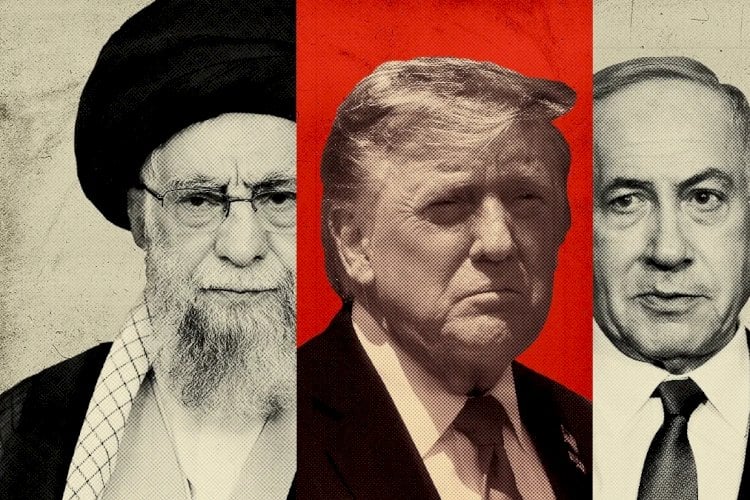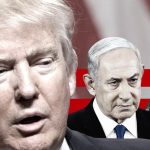U.S. President Donald Trump announced a phased-in ceasefire agreement between Iran and Israel, formally ending what he termed “The 12 Day War.” The ceasefire comes just hours after Iran launched missile strikes at the American military base in Qatar, in retaliation for U.S. airstrikes on Iranian nuclear sites.
Trump declared the truce on social media, stating that Iran would begin the ceasefire in the first 12 hours, followed by Israel in the next 12, culminating in a full cessation of hostilities within 24 hours. “A complete and total ceasefire,” he said, congratulating both nations for ending a conflict that, in his words, “could have destroyed the entire Middle East.”

The ceasefire was facilitated by Qatar’s Prime Minister Sheikh Mohammed bin Abdulrahman Al Thani, following discussions with both Iranian officials and Israel. Trump praised Qatar’s Emir Sheikh Tamim bin Hamad Al Thani for his mediation efforts, adding that no American or Qatari personnel were harmed in Iran’s missile attack on al-Udeid Air Base.
Iran fired over a dozen missiles at the U.S. base late Monday, responding to U.S. B2 bomber raids and Tomahawk missile strikes on Fordow, Natanz, and Isfahan—three of Iran’s most critical nuclear facilities. Trump had earlier claimed that these sites were “obliterated,” significantly setting back Iran’s nuclear ambitions.
Israeli Prime Minister Benjamin Netanyahu also hailed the progress, stating that Israel was close to achieving its core objectives: the neutralization of Iran’s nuclear and ballistic missile capabilities. He emphasized that Israel would avoid a “war of attrition” and would halt its campaign once its strategic aims were fulfilled.
Meanwhile, U.S. Vice-President J.D. Vance described the ceasefire as a “reset moment” for the Middle East, asserting that Israel had achieved an important military victory. He added that while regime change in Iran was not a U.S. military goal, the administration would support any peaceful movement in that direction.
Iran’s acceptance of the ceasefire followed backchannel talks initiated by Qatar after the missile exchange. The arrangement appears to reflect growing regional exhaustion with protracted conflict and signals a shift toward diplomacy.
Qatar has since reopened its airspace, and normalcy has returned across its cities, despite briefly elevated security concerns. Its Foreign Ministry called for a renewed commitment to peace and negotiations, urging all sides to refrain from further military action.
The ceasefire brings temporary relief to a volatile region, though analysts caution that long-term peace will depend on sustained dialogue and mutual restraint.













